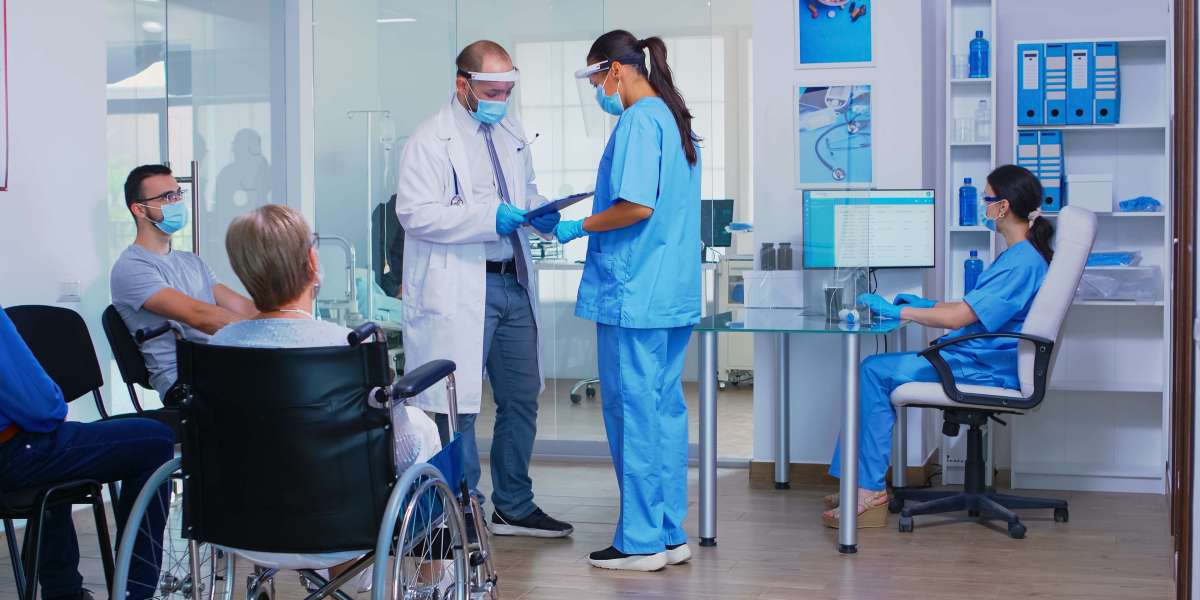Critical care is a specialized branch of medicine that deals with patients facing life-threatening illnesses or injuries. These patients require constant monitoring, advanced medical equipment, and a team of highly skilled professionals to ensure their survival and recovery.
Hospitals in Thane have developed advanced Intensive Care Units (ICUs) and critical care facilities to provide round-the-clock care for patients with severe medical conditions.
Importance of Critical Care
Critical care is vital for managing conditions where the patient’s life is at immediate risk, such as:
Severe trauma from accidents
Heart attacks or cardiac arrests
Stroke or neurological emergencies
Respiratory failure or severe infections
Multiple organ failure
Timely intervention in an ICU can drastically improve survival rates and prevent long-term complications.
Types of ICU Services in Thane Hospitals
Hospitals in Thane offer a range of specialized ICUs tailored to different medical needs:
1. General ICU
For patients with severe illnesses such as pneumonia, sepsis, or multi-organ failure.
Continuous monitoring of vital signs.
Access to ventilators and life-support systems.
2. Cardiac ICU (CICU)
Specialized care for heart attack, post-cardiac surgery, and heart failure patients.
Advanced cardiac monitoring, infusion pumps, and emergency interventions.
3. Neonatal ICU (NICU)
Care for premature and critically ill newborns.
Advanced incubators, ventilators, and feeding support.
Monitoring for congenital disorders and infections.
4. Pediatric ICU (PICU)
Specialized ICU for critically ill children.
Equipment sized and calibrated for pediatric care.
Support for severe infections, respiratory distress, and trauma in children.
5. Neuro ICU (NICU for adults)
Care for stroke, traumatic brain injury, and post-neurosurgery patients.
Continuous neurological monitoring and imaging support.
Advanced Equipment in ICUs
Modern ICUs in Thane hospitals are equipped with state-of-the-art technology to ensure optimal patient care:
Ventilators: For patients with respiratory failure.
Cardiac Monitors: Continuous ECG, blood pressure, and oxygen saturation monitoring.
Infusion Pumps: Accurate delivery of medications and fluids.
Defibrillators: Emergency treatment for cardiac arrest.
Dialysis Machines: For patients with kidney failure.
Central Monitoring Systems: Allowing doctors to track multiple patients simultaneously.
Role of Critical Care Specialists
ICUs are managed by trained professionals, including:
Intensivists: Physicians specialized in critical care medicine
Critical care nurses: Skilled in monitoring and life-support procedures
Respiratory therapists: Managing ventilators and oxygen therapy
Physiotherapists: Early mobilization for ICU patients
Nutritionists: Ensuring patients receive proper nutrition even while critically ill
Emergency Response and Trauma Care
Hospitals in Thane are equipped to handle sudden emergencies with:
24×7 trauma and emergency units
Rapid response teams for cardiac arrest and respiratory emergencies
Advanced imaging (CT, MRI, X-ray) on-site for quick diagnosis
Protocols for multi-trauma patients from accidents or natural disasters
Infection Control in Critical Care
Preventing infections in ICUs is vital because critically ill patients are more vulnerable. Hospitals in Thane follow strict protocols:
Sterilization of equipment and devices
Isolation wards for infectious patients
Regular hand hygiene and protective gear for staff
Antimicrobial stewardship to prevent resistant infections
Cost of ICU and Critical Care Services
Critical care treatment costs vary depending on:
ICU type (general, cardiac, neuro, pediatric, neonatal)
Duration of stay
Ventilator or life-support requirements
Medications and advanced interventions
Most hospitals provide insurance support, cashless facilities, and packages for prolonged ICU care.
Post-ICU Care and Rehabilitation
Recovery after critical illness requires careful follow-up. Hospitals in Thane offer:
Step-down units for patients transitioning from ICU to general wards
Physiotherapy and mobility training
Nutritional and psychological counseling
Follow-up visits to monitor organ function and prevent complications
Importance of Family Support
Critical illness affects not only the patient but also their family. Hospitals emphasize:
Open communication about patient status
Counseling for decision-making and emotional support
Guidance on care after discharge
Future of Critical Care in Thane
Critical care is constantly evolving, and Thane hospitals are adopting:
Tele-ICU Services: Remote monitoring by intensivists for smaller hospitals.
AI-Powered Monitoring: Predicting patient deterioration early.
Advanced Ventilators and ECMO: For severe respiratory or cardiac failure.
Training Programs: Continuous education for ICU staff to keep up with global best practices.
Conclusion
Hospitals in Thane have become highly capable centers for critical care, offering advanced ICU facilities, skilled intensivists, and round-the-clock monitoring for patients with life-threatening conditions.
From trauma care to post-operative recovery, these hospitals ensure that patients receive timely, expert, and compassionate care. With modern equipment, trained staff, and strict infection control protocols, residents of Thane can rely on local hospitals for critical health emergencies.



